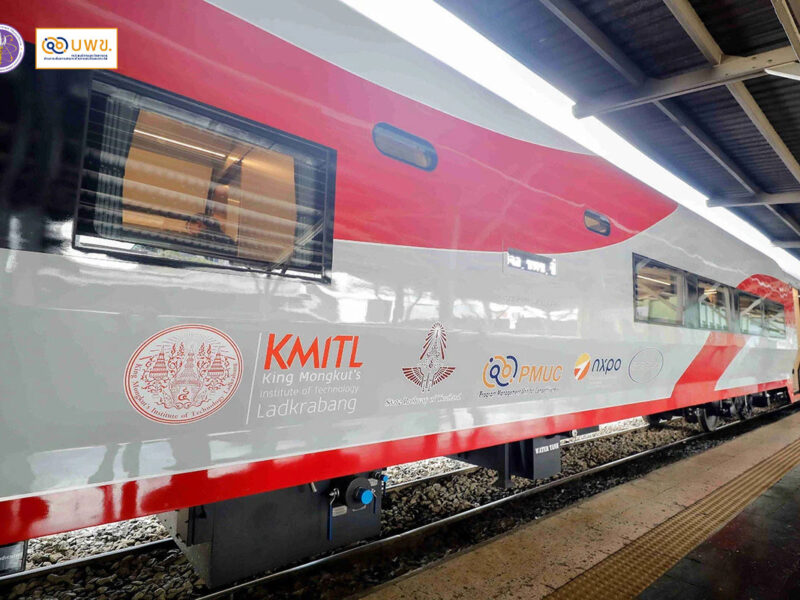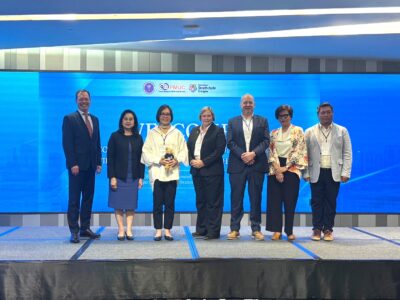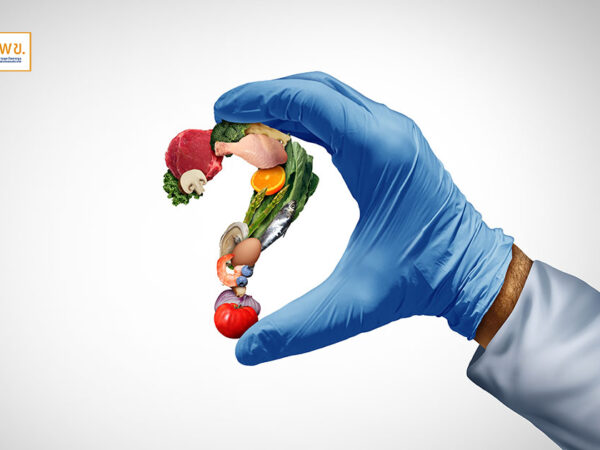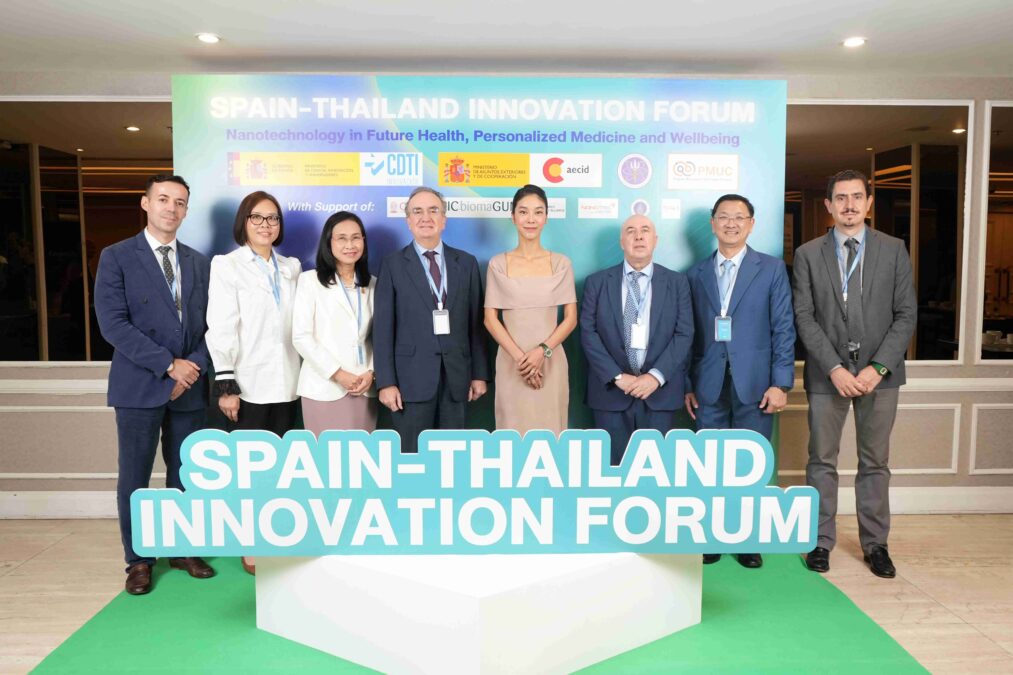
The Ministry of Higher Education, Science, Research, and Innovation (MHESI), through the Program Management Unit for Competitiveness (PMUC), in collaboration with the Embassy of Spain in Thailand and the CDTI-Ministry of Science, Innovation and Universities, Spain, organized the Spain-Thailand Innovation Forum under the theme “Harnessing the Potential of Nanotechnology: Future Health, Personalized Medicine & Wellbeing.” The aim was to promote the future potential of nanotechnology in health, personalized medicine, and wellbeing.
The event took place on July 12, 2024, from 9:00 AM to 2:00 PM at Ballroom A, 1st Floor, Mandarin Hotel, Bangkok. It was officially opened by H.E. Mr. Felipe de la Morena Casado, Ambassador of Spain to Thailand, and Ms. Suchada Tansup, Secretary to the Minister of MHESI.
This Thailand-Spain Science and Technology Cooperation Conference brought together experts, researchers, and leaders in health and nanoscience from both countries to share knowledge, exchange the latest technological trends, foster academic and innovation partnerships, and explore business opportunities. The Spanish delegation, consisting of 11 experts with extensive experience in fields such as nano-disease diagnostics, biomedical nanomaterials, nano-drug delivery, and the use of nanoparticles for effective disease diagnosis and treatment, participated in the conference. This was made possible through coordination with the Spanish Embassy in Thailand and the CDTI, Spain’s national innovation agency.
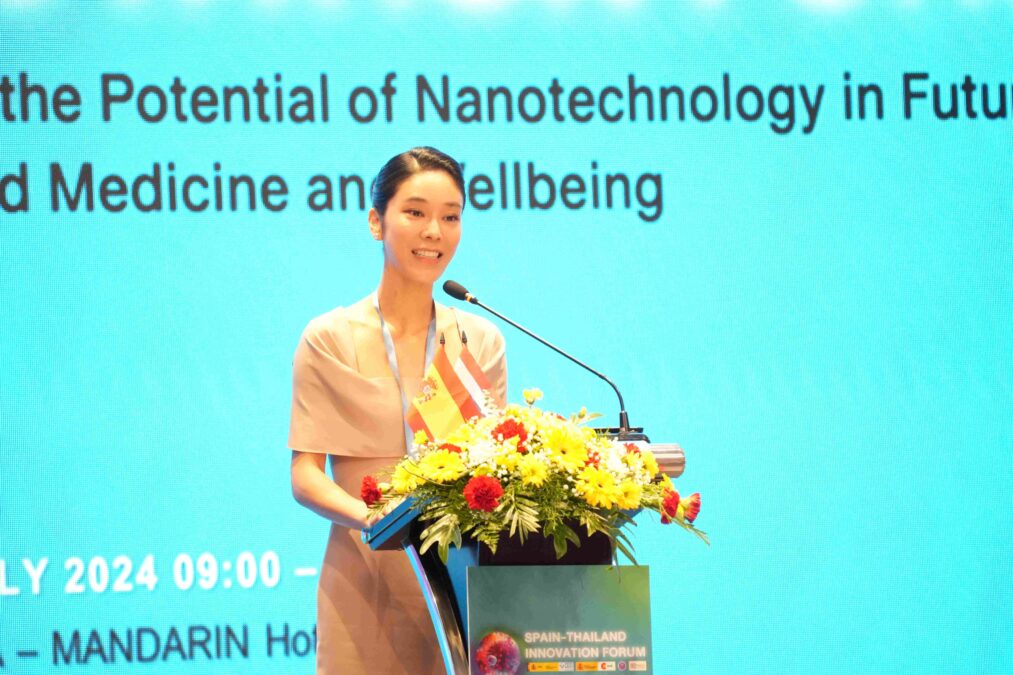
The event featured panel discussions with high-level experts from the academic and business sectors of both countries, who exchanged visions on the future of healthcare and collaboration opportunities, focusing on the impact of nanotechnology on medical diagnostics and treatments, highlighting both benefits and critical challenges. In the afternoon, there were B2B (Business-to-Business) and R2B (Research-to-Business) sessions, which were the event’s key highlights. This marked the first time that over 15 private companies and research institutes specializing in nanotechnology from Spain and Thailand had the opportunity to engage in pitching sessions, presenting their Nano Medicine R&D projects to seek partnerships and funding to advance their businesses. This collaboration aimed to foster the development of technology, products, and services in healthcare and medicine among research centers and enterprises from both countries, which was a core objective of the PMUC and CDTI in organizing this event.
Ms. Suchada Tansup stated, “MHESI has collaborated with the Ministry of Science, Innovation and Universities of Spain to create this forum as an essential platform for networking and promoting the development of nanotechnology in the field of nanomedicine between the two countries. This event is not just a platform for exchanging knowledge, but also provides valuable insights into funding programs from CDTI of Spain and PMUC of Thailand. It demonstrates our commitment to fostering innovation-driven research and development cooperation between Thai and Spanish organizations.”
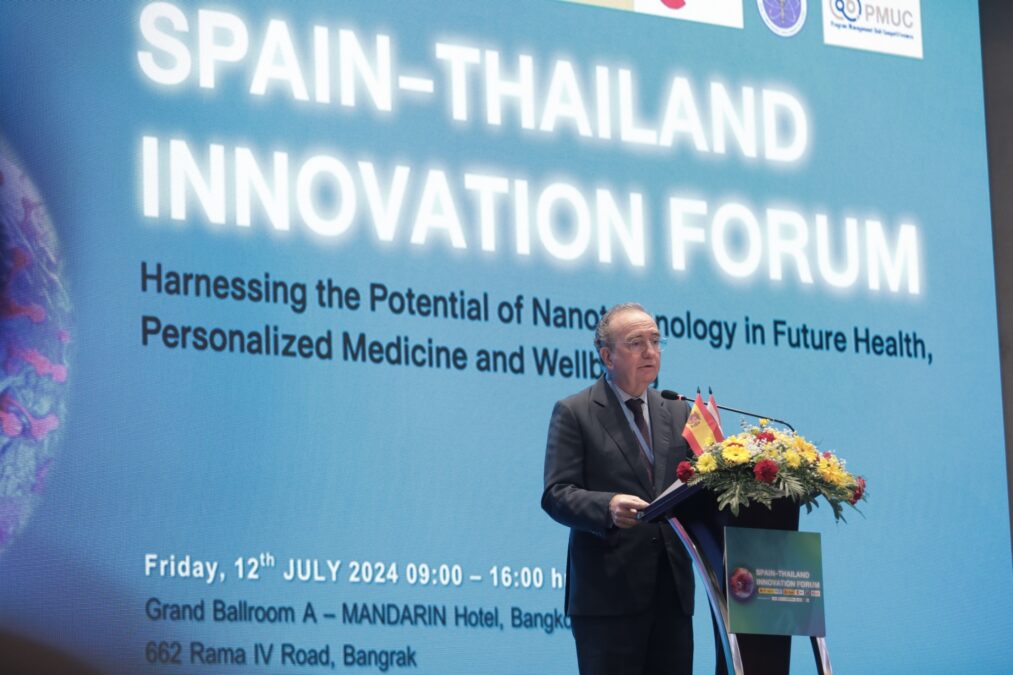
H.E. Mr. Felipe de la Morena Casado spoke about the innovation partnership between Thailand and Spain, saying, “Over the past two years, Spain and Thailand have been working closely together in the field of innovation, with collaborative coordination between various ministries and agencies of both countries. A prime example is the successful partnership between PMUC (Thailand) and CDTI (Spain), which resulted in a Letter of Intent signed in 2022, leading to several significant events such as the first conference in November 2023 on food technology and manufacturing processes, and today’s seminar focusing on medicine and nanotechnology. These activities are key components of our joint action plan for 2024-2026, covering critical topics such as health, the agricultural industry, the circular economy, and clean energy.”
Thai-Spanish Cooperation in Research and Innovation.
The research and innovation cooperation between Thailand and Spain is steadily progressing under the collaboration of the Program Management Unit for Competitiveness (PMUC) of the Ministry of Higher Education, Science, Research and Innovation of Thailand and the Centre for the Development of Industrial Technology (CDTI) under the Ministry of Science, Innovation, and Universities of Spain. Both parties signed a Joint Declaration of Intent in 2022 and have established a joint action plan for 2024-2026, which is paving the way for concrete initiatives, collaborations, and exchanges between the two countries. Moreover, PMUC and CDTI are determined to negotiate a Memorandum of Understanding (MoU) to establish a joint funding mechanism, aimed at strengthening innovation cooperation and technological partnerships between Thailand and Spain.
One of the ongoing projects, supported by both PMUC and CDTI, is the development of a new rice variety for health purposes, with participation from the Rice Science Center, Kasetsart University, the Spanish company COPSEMAR, and the ICTAN/CSIC Research Institute. Furthermore, new technological collaborations are being explored in various areas, such as drug discovery from natural products, clean technology, and health technology. At the same time, Thai universities like Chulalongkorn University have been expanding research and industrial collaborations with Spain in fields such as medical nanotechnology and food safety.
Within just seven months, Thailand and Spain have organized two high-level innovation conferences to address global challenges in areas where both countries have complementary technological and business capabilities. These include sustainable and healthy food production systems and, most recently, health, with a focus on the application of nanotechnology for health, personalized medicine, and future well-being. The conferences successfully attracted Spanish delegations specializing in research and development, as well as over 100 experts from 10 agencies under Thailand’s Ministry of Higher Education, Science, Research, and Innovation.
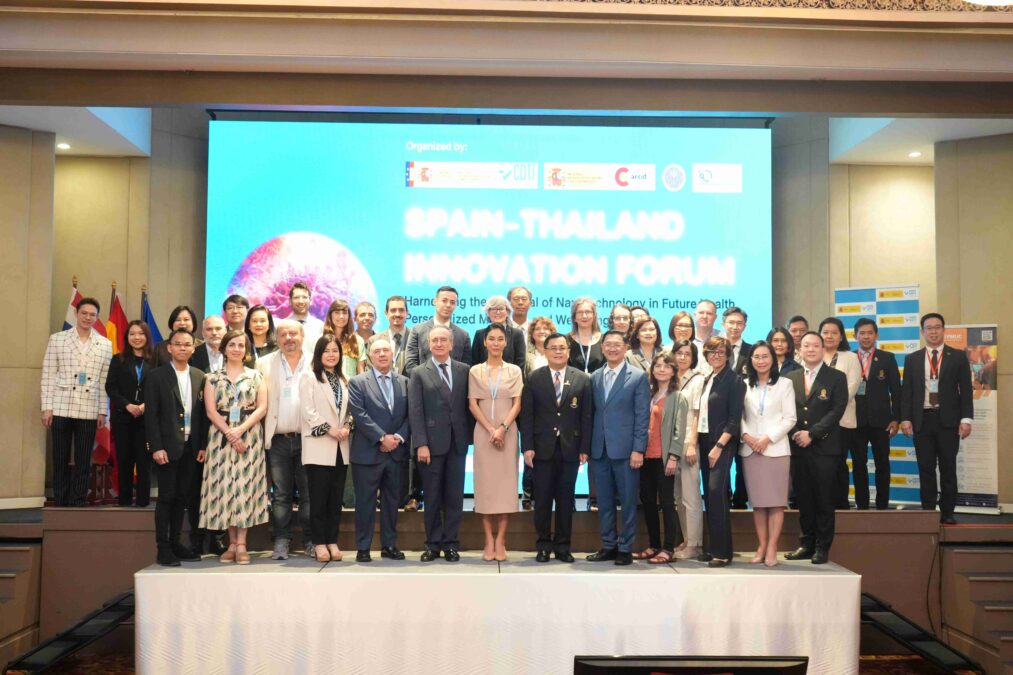
Key Highlights of the Events:
- In-depth presentations on the research and development capabilities, leadership, and infrastructure in health and medical nanotechnology of both countries.
- High-level expert discussions covering the future of health and collaboration opportunities.
- Presentations by entrepreneurs and researchers from both Spain and Thailand on technology and innovation capabilities, aimed at fostering collaborations in joint product and research development.
- Discussions on a collaborative framework between the two countries.
- The presentation of the “Thailand-Spain Bilateral Framework,” a project designed to promote and support research and development cooperation in innovation between the two countries.
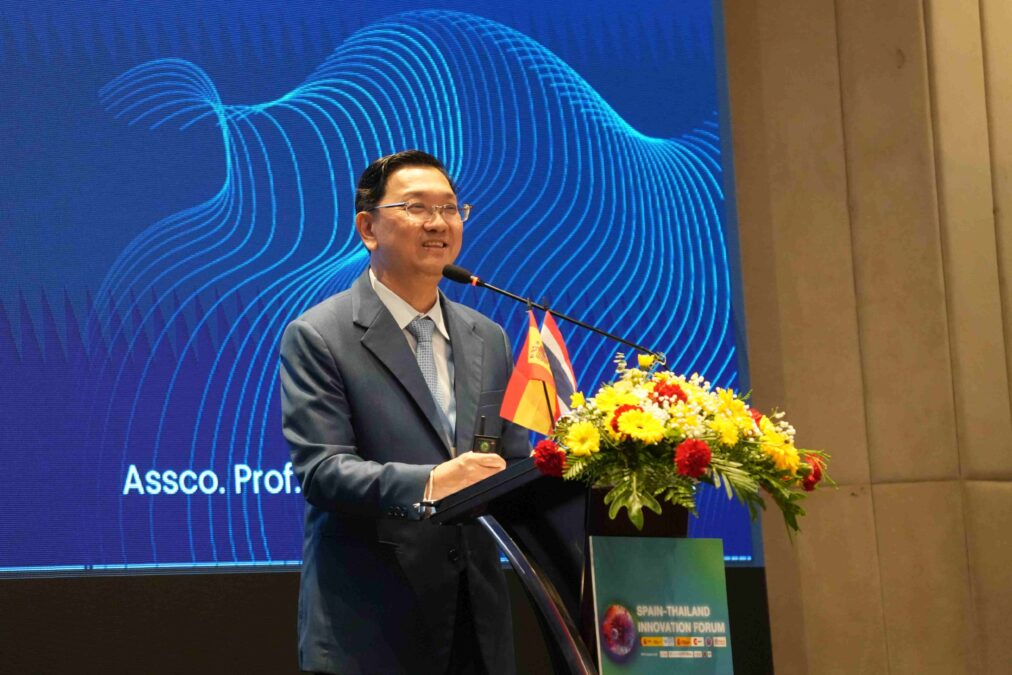
Assoc. Prof. Thongchai Suwansichon, Ph.D., Director of PMUC, stated, “PMUC is committed to enhancing Thailand’s competitiveness by leveraging the strengths of strategies, research and development promotion, visionary leadership, robust infrastructure, and international cooperation. This collaboration between PMUC and CDTI places particular emphasis on health and medical nanotechnology development, which will be a crucial foundation for creating opportunities in the health and medical industry, propelling Thailand toward sustainable global market leadership.”
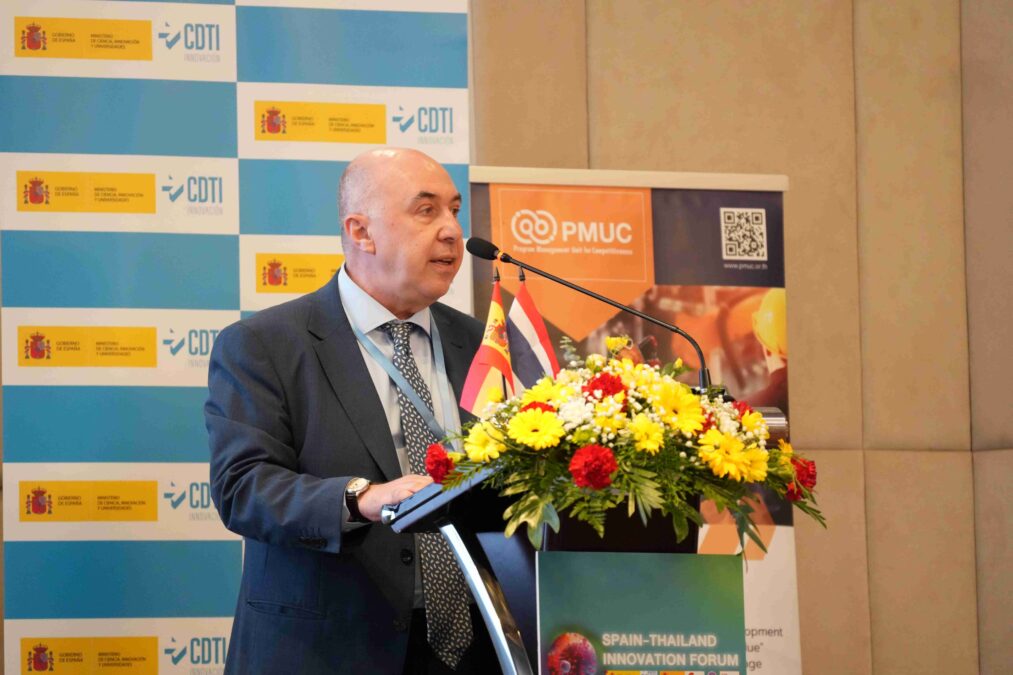
Mr. Carlos de la Cruz Ruiz, Director of CDTI Spain, added, “For over 40 years, CDTI has supported Spanish companies with investment capital and research and development funding, benefiting more than 13,000 companies with a total investment value exceeding 16.3 billion euros. The cooperation between CDTI and PMUC, along with research centers, universities, and the private sectors of both Thailand and Spain, has enabled extensive knowledge and technology exchange. This partnership has provided opportunities for both countries to advance together in the fields of science, markets, and new product development.”
Both countries expect that the outcomes of these events will lead to stronger joint research and development collaborations between Thai and Spanish institutions and companies, with the initiation of new projects focusing on applying nanotechnology to improve public health. The exchange of knowledge and expertise between the nanotechnology development groups of both countries will be a significant step forward in revolutionizing Thailand’s medical nanotechnology sector, leading to better health outcomes and enhancing the competitiveness of the country’s health and medical industry.
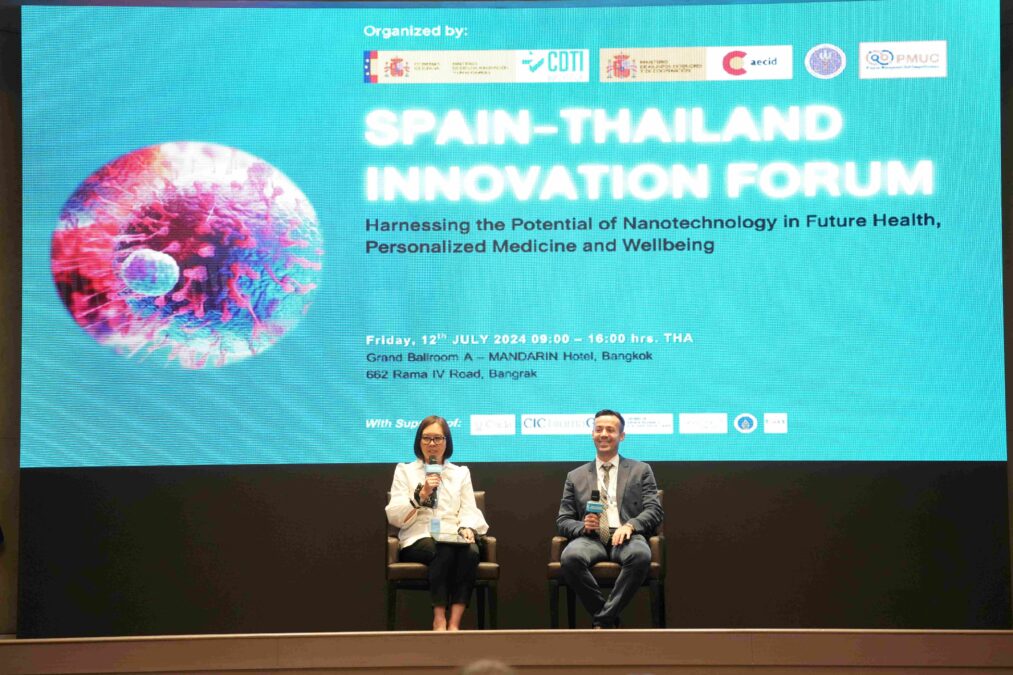
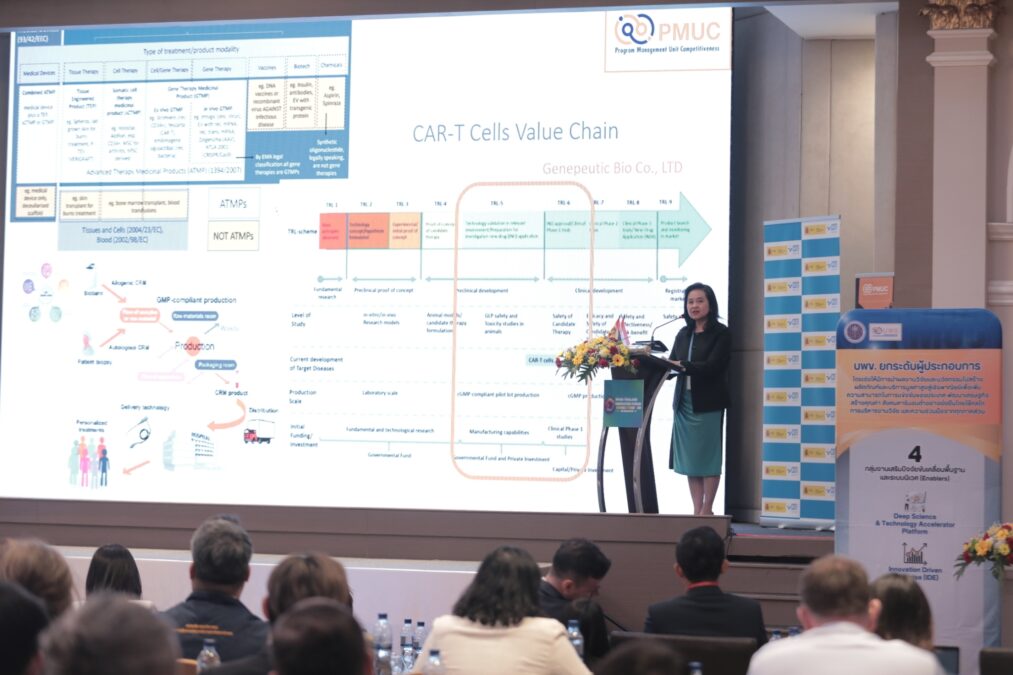
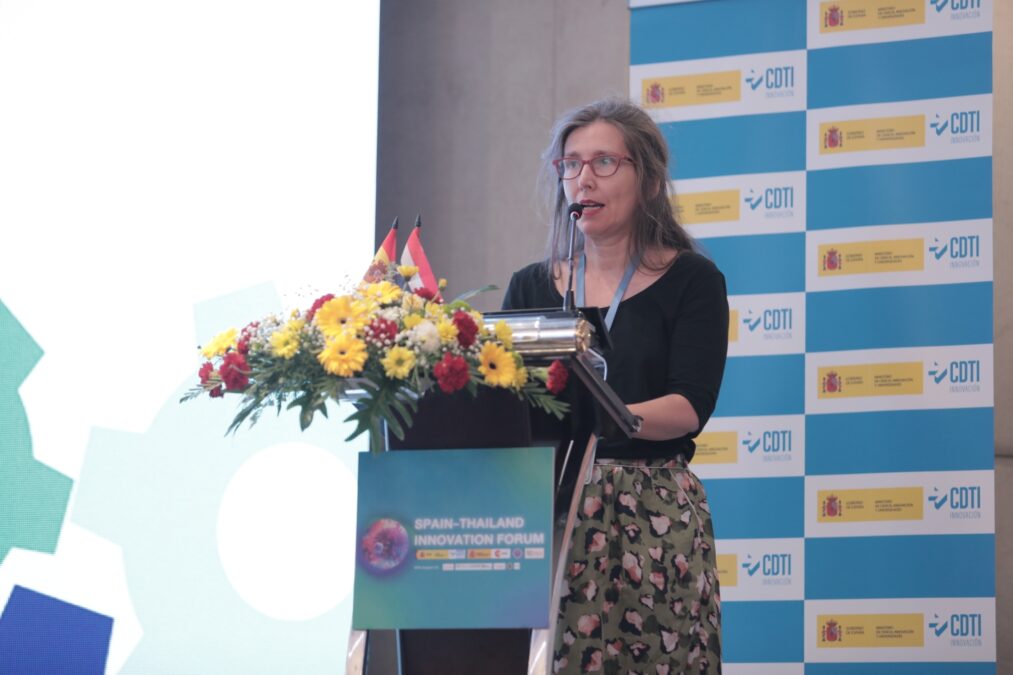
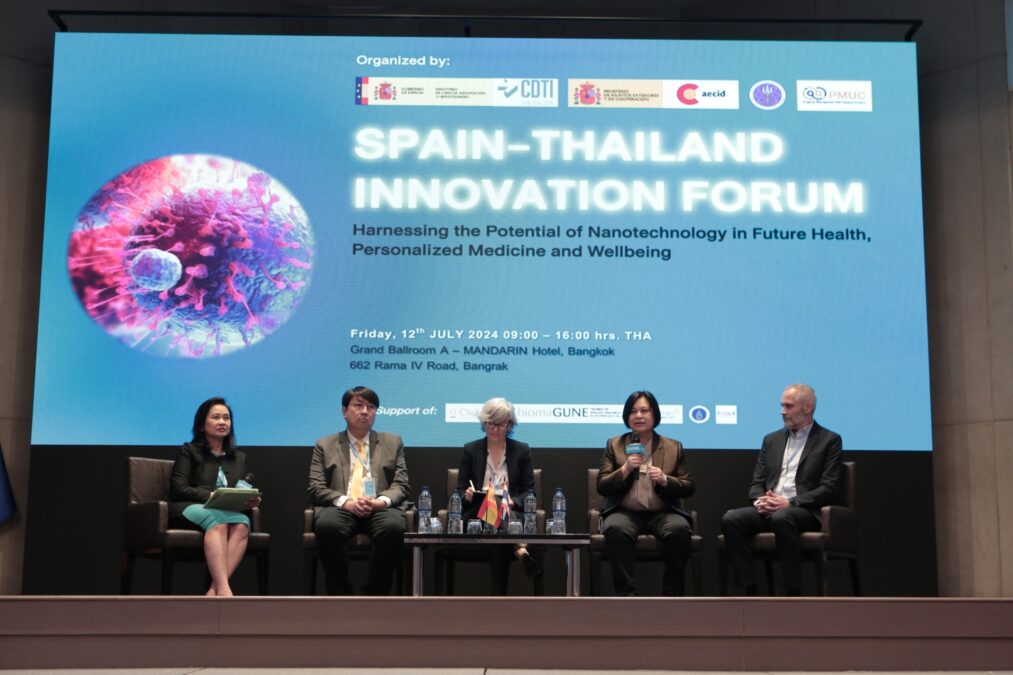
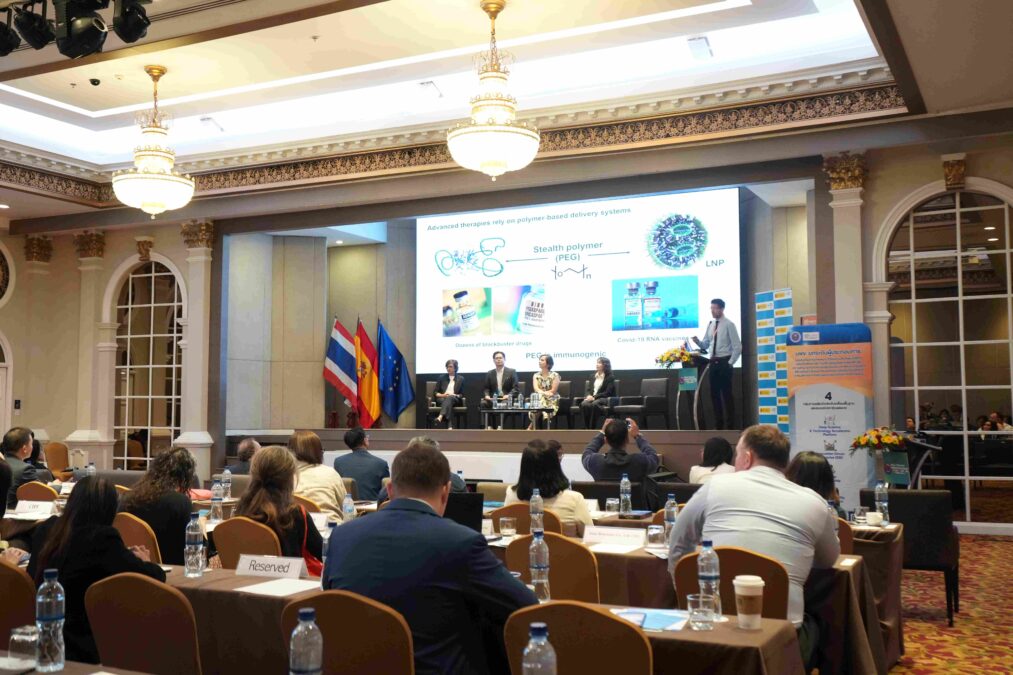
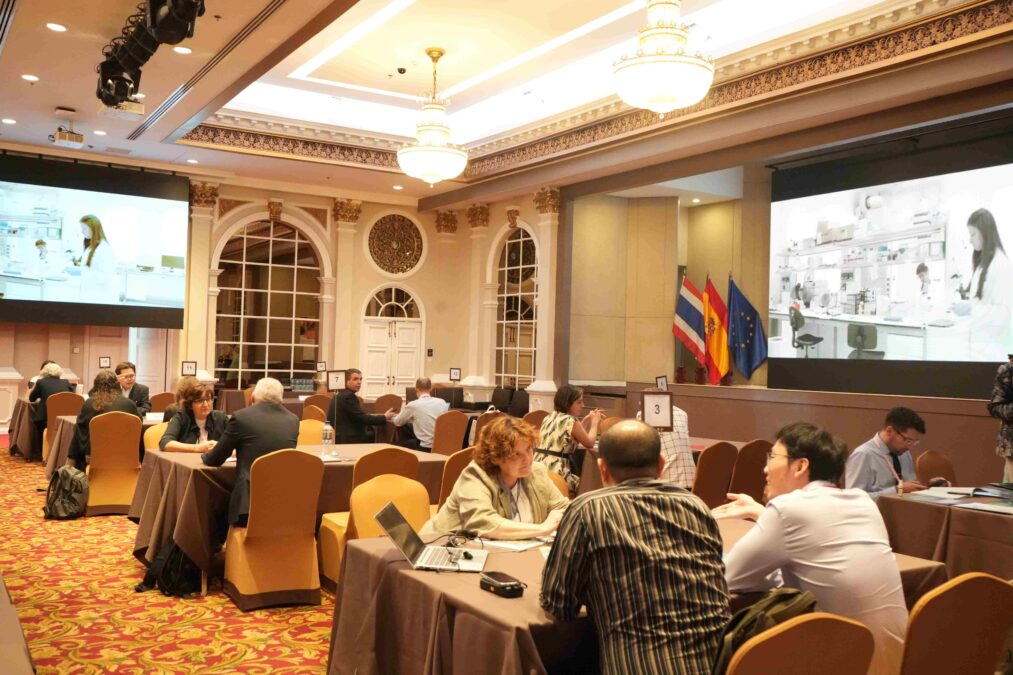
The Program Management Unit for Competitiveness (PMUC), a research funding organization dedicated to enhancing the nation’s competitiveness, aims to promote collaboration between the public and private sectors, both domestically and internationally, to translate research into practical commercial applications, thereby helping Thailand to break free from the middle-income trap.

